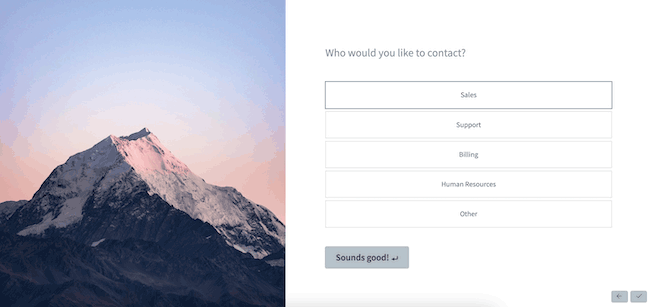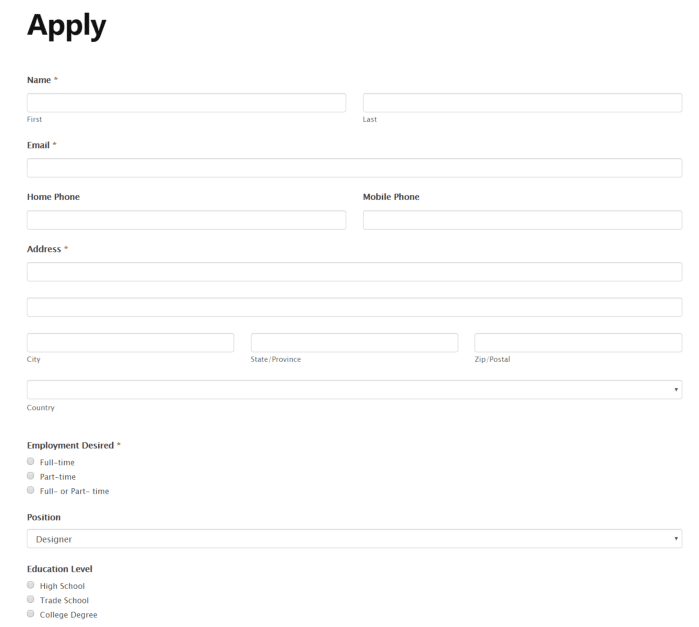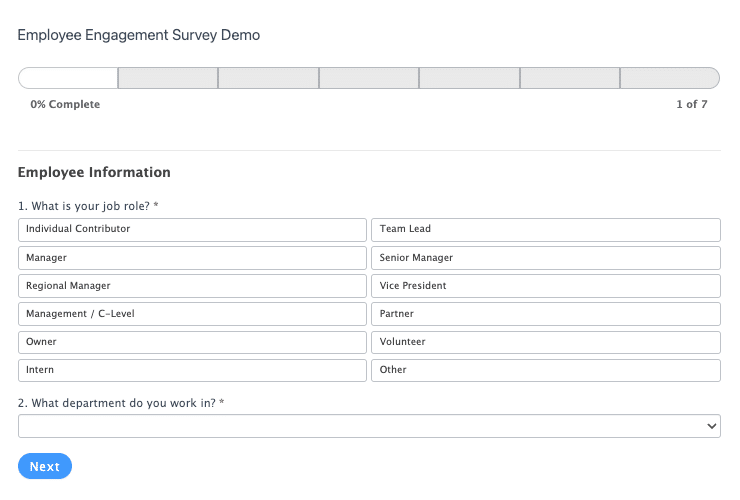Still deciding between form vs survey? This guide explains the difference and how to use each. Discover the differences, best use cases, and tips.

Approximate read time: 4.5 minutes
A survey is just a type of form, right?
Well, sort of. And I can't fault you for thinking it. They seem like the same thing on the surface but differ in how people use them and the data received.
While both are important for gathering data and feedback, knowing the difference is critical. So, I'm here to explain the difference between a survey vs a form. I'll give an overview, talk about their use cases, and give some tips for using each one!
So, let's jump in.
How is a form and survey different?
Forms and surveys may appear the same at first.
Both require people to answer questions and enter accurate information. They both have form fields. And people generally don't like doing either of them 😂.
But they have very distinct jobs:
- Forms collect data. Think of forms like a question-and-answer game. It's a way to get quick information. They gather specific information about someone (think name, email, order details, etc.).
- Surveys collect opinions. Surveys go deeper with more detailed answers. They ask for audience opinions, feedback, preferences, or experiences. The goal is to understand how people feel about something.
Knowing the difference between the two is key to getting the necessary information. Otherwise, it's just wasted time and effort!
Best uses for forms
Forms get a bad rap.
We all think of doctor's visits and taking out a loan, with our eyes closing as we fall asleep. But forms are incredibly important for many situations. Just think of life if we didn't have forms.
So, here are a few common use cases.
Contact/registration forms
These two forms are critical to many websites.
Whether it's signing up to order a product, a membership registration, or a simple 'Contact Us,' forms are perfect here. They gather specific information, often surrounding a person's name and email.

They're also great for events. People can register to attend concerts, weddings, and festivals using a form and then contact the event staff using a contact form.
Lead generation forms
Lead generation is the backbone of many websites.
And a lead generation form is a key piece of that. There are many ways to generate leads from a website — calculators, gated content, templates, and eBooks.

Whichever way, there must be a form to collect the user information. Otherwise, it's not a lead!
Applications
Job applications, grant proposals, mortgages — everyone pictures a form just hearing those words.

Forms are an easy way to gather a lot of background information quickly and then organize it based on different criteria.
Best uses for surveys
Think of surveys like starting a conversation.
They're the go-to when analyzing an audience's thoughts or experiences. There are many different use cases for surveys, but some are more common than others.
Here are some prime examples of where they shine.
Customer feedback/market research
A direct line to see what customers think about a product or service.
There's no better way to get audience insights than to ask customers directly. However, that requires many survey question types. Likert scale, ranking, open-ended questions, and multiple-choice questions — a lot goes into creating the ideal customer satisfaction survey.

This feedback is actionable data to improve a business or website's marketing efforts and increase user engagement. It makes products better and makes customers happier.
The same type of survey can be used for market research, too. The questions will be adapted slightly to find information about consumer preferences, an industry, or trends. Still, it's a great way to learn more about a particular market from the data collected.
Employee engagement
Employee engagement surveys are perfect for measuring worker morale and areas for improvement.

Employees with high levels of engagement are likely to be better and more loyal. So, getting employee feedback is crucial for that.
Polls & quizzes
Polls and quizzes serve more of a fun (but still important) purpose for a website.
First, quizzes are excellent for lead generation.

These surveys are a fun and engaging way to ensure people complete the survey and are also more likely to do it.
Tips for creating effective forms
The design of a form ultimately depends on each website's needs.
But there are a few best practices to help out early on:
- Keep it simple: Use as few fields as possible to increase completion rates.
- Be clear: Ensure each question is easy to understand.
- Mobile-friendly: Optimize for all screen sizes to attract all users. A mobile survey is perfect for this.
Tips for creating engaging surveys
Just like a form, a survey must match the website's audience.
So, here are a few tips to get started:
- Start strong: Lead with an engaging question to engage users quickly.
- Limit length: Keep surveys short to prevent fatigue (it's a real thing!).
- Offer incentives: Consider rewards for completion to boost response rates.
Let Formidable Forms help
Here's the cool thing: Formidable Forms has the tools to help you create both forms and surveys!
Whether you want to create the next viral quiz or just a simple contact form, Formidable Forms is the best WordPress form plugin for the job. With a drag and drop form builder, plenty of WordPress form templates, and a powerful survey plugin — it's got everything you need.
If you don't believe me, just look how easy creating a survey in WordPress is. Then, see how easy it is to create a WordPress form.
Or, grab our WordPress plugin using the button below and get started!
 Formidable Forms Currency Fields Update Incoming!
Formidable Forms Currency Fields Update Incoming! How To Use WordPress to Redirect to a Page After 10 Seconds
How To Use WordPress to Redirect to a Page After 10 Seconds Formidable Forms Anniversary 2025: The Most Advanced Form Builder Turns 15!
Formidable Forms Anniversary 2025: The Most Advanced Form Builder Turns 15!
Leave a Reply